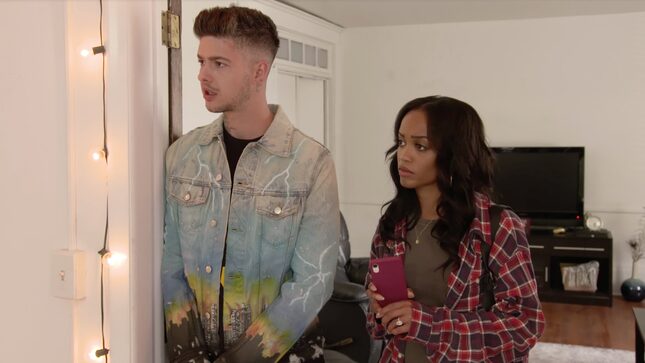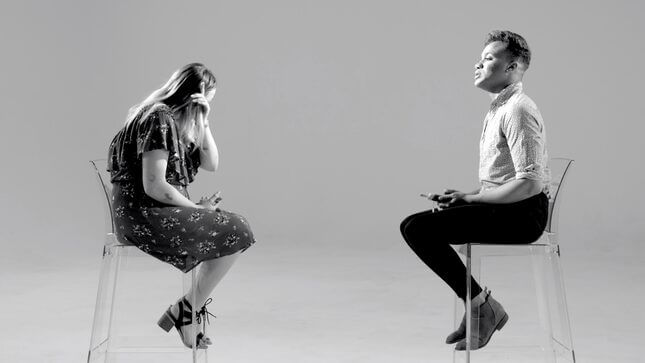

On paper, MTV’s latest pseudo-investigative television program about human interactions, Ghosted: Love Gone Missing, is basically a mundane version of Catfish. In reality, it’s not just a copy. The two-episode premiere on Tuesday wasn’t as eventful as the show made famous by Nev Schulman and Max Joseph (which became a national pastime), but it is similarly captivating.
The format is the exact same as Catfish: it has two hosts, Rachel Lindsay, the only black Bachelorette in franchise history, and Travis Mills, one-time MySpace rapper/Apple Music’s Beats 1 radio host who I know best as boyfriend to Madelaine Petsch (Riverdale’s Cheryl Blossom). The pair explain in the intro that they’ve bonded over past ghosting experiences and now aspire to help others navigate their own situations—Lindsay admits to not knowing that her ex had a child, though so maybe coming out of the gate with naive “experts” isn’t the best idea? But it ends up working. The hosts meet up with their subjects, nicknamed “The Haunted,” a melodramatic term for someone who has been ghosted, and ask questions, in earnest: “Can you tell us about the date of the ghosting?” and “Are you ready for us to track down your ghost?”
-

-

-

-

-

-

-

-

-

-

-

-

-

-

-

-

-

-

-

-

-

-

-

-

-

-

-

-

-

-

-

-

-

-

-

-

-

-

-

-









































